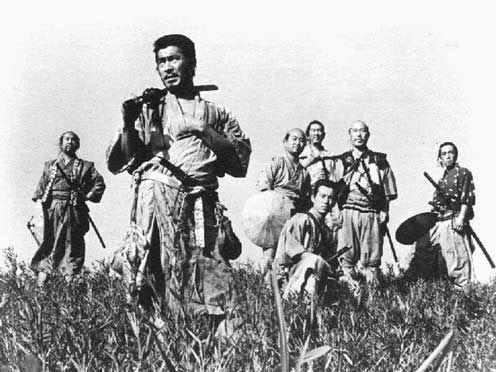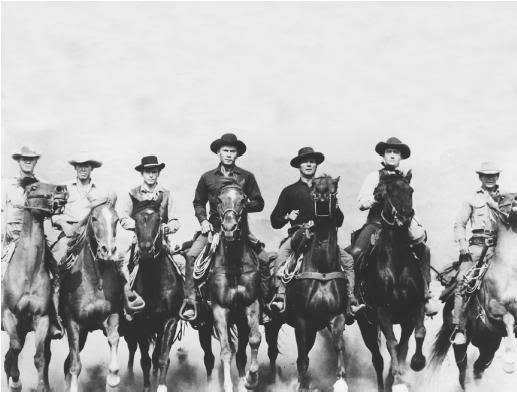 A friend here at GS told me about this book so I picked it up last week and have been reading it the past few days.
A friend here at GS told me about this book so I picked it up last week and have been reading it the past few days.
I don't normally read Christian fiction--at least, not by anyone who's still alive. But this story is basically Theodicy set in narrative context. The main character, Mack, is a husband and father who experiences the horror of having his youngest daughter abducted and killed by a serial killer while they are on a camping trip. They find the remains of her dress in an old abandoned cabin. Sometime later, Mack receives a note in his mailbox that turns out to be an invitation back to that cabin for a conversation. The one who sent the note turns out to be God. Mack goes back to the cabin and encounters the Triune God in quite unexpected ways.
The conversations center around suffering, the nature of God, the trinity and the judgment/love paradox...at least thus far. I haven't finished the book yet. But it's very much reminiscent of the conversations between Ransom and the Un-man in C.S. Lewis' "Perelandra" in that it is deep theology disguised as dialogue between two fictional characters. A similar approach is found in many of Peter Kreeft's books, particularly "Socrates Meets Jesus", which I highly recommend.
Given the current flood of Christian fiction that is theologically famished, I think "The Shack" is a diamond in the rough. At times the dialogue may be a bit artificial. But overall I'm enjoying it. It would be a good book to give to those outside the Christian faith as well because it presents things from such a different angle than normal, and therefore offers an effective apologetic to a cynical post-christian culture.
JMS
I would love to hear feedback or reviews from others who've read it as well--positive or negative.
June 26, 2008
June 17, 2008
Being a pastor and a single at the same time...
Unmarried ministers face the same struggles as other singles – but theirs are more public
By Katharine Dale
kdale@charlotteobserver.com

GARY O'BRIEN/Observer staff photo
While they might not be found throwing back shots at the bar or canoodling uptown until 2 a.m., don't assume they're just sitting at home reading the Bible.
They go rock climbing and cycling. They're artists. They're musicians. They date. And their title doesn't exempt them from issues everyone else faces, including temptation, sex, loneliness - and losing a loved one.
We talked to five single ministry leaders in Charlotte, and here are their stories.

Tamara Park
A seminary professor once told Tamara Park she'd enjoy studying Hebrew. So she moved to Jerusalem for a year.
“The reality is that my time does look differently, not having a husband or children,” she said. “I think ‘How do I steward that, and take risks and move into opportunities that I couldn't do if I were married?'”
While backpacking through the Middle East a few years ago, she interviewed Muslims, Catholics and people of other faiths, asking their perceptions of God. Now she's writing a book.
“I don't know how I could have written that book if I were married with children,” she said. “Sacred Encounters from Rome to Jerusalem" will be released in November.”
Whether writing, combating injustice, running or salsa dancing, Park, 37, longs to minister out of her complete life experiences. That means not, she said, as a “perfect” person, just an unmarried clergy member or just a woman. The south Charlotte resident is pastor of community at Warehouse 242 near uptown Charlotte, part of the Evangelical Presbyterian Church.
“We often have unconscious perceptions of what a leader, especially a church leader, should look like - which oftentimes is a married man,” said Park.
“I grew up in a church where a woman couldn't be pastor…I know people have unspoken assumptions, (but) I've really studied the scriptures and realized women do have a role. There's a mutual respect, and a real appreciation and value, of having men and women's voices together.”

Alan Porter
It's not every day a man of God says his favorite movie is a chick flick about a prostitute who falls in love with Richard Gere. But if you ask Alan Porter, “Pretty Woman” is his answer.
“It really speaks to me a strong message of how difficult it can be to find people who are interested in you, who appreciate you beyond what you can give them,” he said. “It demonstrates to me how there are people out there like that, but it shows the walls that people of notoriety put up, and have to put up.”
Porter, executive pastor at Greater Salem Church in northwest Charlotte, said one of the most difficult aspects of his job - and his life - has been developing relationships.
In some cases, he said, women he might be interested in dating see him only as a pastor. “They relate very clearly to the role, but not always to a person,” he said.
Porter, 45, recently moved to Huntersville from Maryland. To escape the daily grind, he jogs and goes to the movies – where he sits up in a corner, alone, with nachos and a Coke.
“I like the solitude, just being able to go and get lost in there,” he said. “I'm around people, but I feel like I'm by myself.”
At the end of the day, Porter said his “keeper” is not his secular relationships, vocation or “Pretty Woman,” but his commitment to God. “That's what's made me successful,” he said.
His advice to others: “What I encourage single pastors to do is to live,” he said. “Find out what your dreams are, where your passion is, and pursue that...Don't make pursuing a partner your whole life passion. Spend your time pursing the person you long to become.”

Brad Saab
Brad Saab endures loss like everyone else – except it's his job to bear his pain in public.
After his girlfriend of six months, Janet Devaty, was struck and killed by a truck's trailer last October while she jogged in Myers Park, all eyes were on him.
Would he fall apart? Would he curse God? Does he genuinely embrace his faith in all circumstances, as he teaches?
“I mean, I was destroyed at that point,” he said. “I loved her. But I trusted God and wanted to use my life to encourage people. I talked with my students about it, and the church – trying to use it for other people's benefit.”
Saab, 27, embraces being a student ministry pastor at Charlotte South Fellowship, saying it encourages him to set a Christ-like example. “People look to me to either find encouragement to do the right thing, or an excuse to do the wrong thing.”
The University of Florida graduate, who lives in Union County, wants to marry someday. He looks forward to romance – dancing in the kitchen while cooking dinner.
Until he finds “the one,” Saab feels at peace with single life and spends his free time rock climbing and hiking.
“A lot of people spend their single years in a state of desperation,” he said. “It's got its disadvantages, but it has a bright side. I'm using this time and these resources to help people and to love God, so it's a cool thing.”

James-Michael Smith
Being single didn't stop James-Michael Smith, pastor of discipleship at Good Shepherd United Methodist in Steele Creek, from giving a sermon entitled “Let's Talk about Sex.”
When there's a sermon on why singles should practice abstinence, he said, “it's always by someone who gets to go home and have (sex), because they're married,” he said. “The single people who typically dismiss it go home and think, ‘Oh, that's easy for you to say.' But I can say, ‘It's not easy.'”
Added Smith, 29: “My title doesn't make me inhuman. I'm still a guy who has needs and desires.”
When it comes to dating, the Savannah native disagrees with one evangelical subculture that sometimes looks down on dating as inappropriate or unbiblical. “It's a way to get to know someone with clear intentions, to know someone better in order to find out if they could possibly be who you end up with.”
Smith, of the Steele Creek area, is passionate about his convictions, but he's accepting of different views. Much of his time is spent reading, leading Bible study, drawing (he has a bachelor of fine arts) and doing martial arts.
“Most people are kind of surprised that a pastor can be passionate about martial arts, which is fun 'cause I get to break that stereotype,” he said.

Rob Kelly
Rob Kelly is known as the perpetual kid - the “famous” single guy on staff at Carmel Baptist Church in Matthews.
There seems to be an unwritten rule, he said: Pastors should have a family, or at least be married, before they're seen as “grown up.”
Kelly, 30, a college and young adult pastor, feels that having a wife would alter the dynamics of his job in a positive way.
“It's...the way I interact and minister to girls,” said the Seattle native. “I have a lot more freedom to interact with guys. With women, I have to really watch my interaction and guard myself....
“Pastors have to be cognizant of every thing they do and every word they speak.”
Still, people both inside and outside the church are sometimes surprised what they find when they get to know him.
“I am very much just a regular guy who likes hanging out with his friends, traveling, playing guitar and watching ‘Lost,'” he said.
“I've heard on a number of occasions, ‘For a pastor, you're pretty regular.' I think it even goes that way for Christians: people saying, ‘Wow, you're a Christian, but you're normal.'”
One perspective
Alan Porter of Greater Salem Church summed up the reasons navigating his ministry as a single pastor can be tricky:
Politics. “I was 23 when I started,” he said. “I was the youngest pastor in the church, and everyone was always telling me if I was gonna be successful I had to be married. So I found myself almost giving into that. I thought, if I wanted to stay on the right path I had to be married.”
Pressure. Women sometimes assume that if he enjoys their company, the altar is next, he said.
Perception. “When people meet you and discover you're single, the next words out of their mouth are, “We've got to find you a wife!' What is it on my face that says I'm suffering because I'm single? That bothers me, because it implies I'm not a whole person because I'm not married, like my clothes are wrinkled. There's more to me than my singleness.”
The microscope factor. Every move they make feels scrutinized, which can make doing “normal” things, such as dating, difficult. “If you don't pay attention or talk to girls, then you're standoffish,” said Smith. “Then if you do, you get labeled as going after someone. People are ambivalent in ministry; they want you to be married but they don't want you to date.” Added Rob Kelly of Carmel Baptist: “I can say with confidence that it was much easier to date before I was a pastor.”
June 13, 2008
A Bad Girl of the Bible question
My friend Dani sent me the following question via Facebook. I told her it would make a great blog post entry and that I would answer it in the Dojo!
Hey how are you? I figured I would try and give you something to blog about if you ever have a block.
Actually, if you don't mind; I need someone smarter then me to answer a question about Potiphar's Wife. My small group is studying "Bad Girls of the Bible" by Liz Higgs... Anyway, this week we are reading about Potiphar's wife. In the lesson part Higgs makes the comment about how she must have been so desperate to break her marriage vows and talks about how adultry was a sin of death for God.
My question is if the Egyptian's didn't worship or know God's law how then can they be held accountable for breaking them? If Joseph had slept with her, then I can see holding him accountable -- because he knew better.
Also weren't the Egyptian's very much like the Greeks and Romans, in that they were "swingers", meaning they slept around? And weren't women at that time disposable? If Potiphar didn't want her, he could get rid of her?
Lastly, I understand the lesson that we are to get out of this story, but she brings up again that this women doesn't do what is right in the eyes of the Lord. Well, if you don't know Him -- how are you supposed to. Higgs points out that all she had to do was admit her sin before God and then all would be good. So I'm I off base, in thinking that though there are lessons we can learn, Higgs is off base in theology?
Thanks,
Dani
Dani, this is a great question. I think there are some assumptions which must be addressed in order to help answer your questions. The main issues are:
1) the role of women in Egyptian culture, including the dynamics of marriage, particularly in the highest strata of Egyptian society,
and 2) culpability before God apart from the Torah law.
You ask if the Egyptians were "swingers", like the Greeks and Romans. Well, one thing to remember is that the Egyptians of Potiphar's day are separated by the Greeks and Romans of Jesus day by over 1,000 years. That's a long time! So any comparison of the Egyptians of Genesis to the later Greeks and Romans is kinda like comparing Americans today with Germanic peoples in medieval times.
So we have to look at the Egyptians on their own terms when it comes to the issue of marriage and adultery. And in fact, there is an absolutely fascinating parallel to the story of Joseph and Potiphar's wife found in an ancient Egyptian text called "The Story of Two Brothers." Here's the reader's digest version:
There were two brothers (Anubis (older) and Bata (younger). Anubis was married and had a home. Bata lived with Anubis and his wife, helping tend the cattle and harvest the fields. Bata lived in the stable with his cattle (Interestingly, the text says about Bata that "There was no on elike him in the entire land. Why, the strength of a god was in him.")
At the prompting of his cattle (yes, in the story the cows can talk and tell Anubis where to lead them to good grass that they like!), Anubis and Bata lead them out into the fields for many days in order to plow and harvest. They run low on seed, so Anubis sends Bata home to get some more supplies from the house.
When Bata arrives at the house, Anubis' wife is sitting there doing her hair. He asks her to help him get supplies loaded to take back. She tells him to get it himself because she doesn't want to interrupt combing her hair (yes, the text literally says that!). So Bata gets the supplies and brings them out to load up. She asks how much he's taking and he tells her. Here's what the text says happens next:
Then she [talked with] him, saying "There is [great] strength in you! Now I see your energies every day!" And she wanted to know him as one knows a man.
Then she stood up and took hold of him and said to him: "Come, let's spend an [hour] sleeping (together)! This will do you good, because I shall make fine clothes for you!"
Then the lad [became] like a leopard with [great] rage at the wicked suggestion which she had made to him, and she was very, very much frightened. Then he argued with her, saying: "See here--you are like a mother to me, and your husband is like a father to me! Because--being older than I--he was the one who brought me up. What is this great crime which you have said to me? Dont' say it to me again! And I won't tell a single person, nor will I let it out of my mouth to any man!" And he lifted up his load , and he went to the fields."
(From Pritchard, "Ancient Near East Texts...", Princeton, pp.23-24)
The parallels with Potiphar's wife and this story are so strong that many critics have simply dismissed both accounts as Egyptian fables, one of which got incorporated into the book of Genesis. However, there's no reason to assume this. One could just as easily argue that the actual story of Joseph got transformed into the fable of Bata (the time period allows for this).
Regardless, what's important for our discussion is that in this non-Biblical Egyptian fable, adultery is seen as a horrible crime by the Egyptians themselves. This also fits with the Biblical account in Genesis 12 where Abram tells that Pharaoh that Sarai is his sister and Pharaoh takes her as a wife. When Pharaoh finds out via a dream that the Sarai is already married, his response to Abram is "What is this you have done to me? Why did you not tell me she was yoru wife? Why did you say, 'She is my sister,' so that I took her for my wife? Now then, here is your wife, take her and be gone!" (Gen.12:18-19).
So from these two texts, one Biblical and one extrabiblical, we see that the Egyptians were definitely not "swingers" and that sleeping with someone else's spouse was a very, very serious wrong. I think this is a perfect example of the Biblical doctrine of Common Grace, whereby God has not left people completely without any moral compass. Rather, God's foundational moral nature is implanted within all humanity and even despite the fall, vestiges of it remain--some of which are preserved in law codes in various societies apart from the Biblical tradition. This is why in Romans 1, Paul can appeal to this natural revelation by God to gentiles in order to show their guilt in going against it, even though they did not have the written law of Moses which contained the Ten Commandments.
So Potiphar's wife was morally guilty by the universal moral revelation by God against adultery as well as by her own culture's recognition of it as wrong--not to mention her lying and bearing false witness against Joseph which could have potentially led to his execution. Yes, she was indeed a "Bad Girl of the Bible"! However, as for her being "desperate to break her marriage vows", well, that's not really found in the text. In fact, she propositions him when no one else is around intentionally, so that it will remain a secret and her marriage would remain intact. I think this is where many popular authors of Christian books begin to take liberties with the text in order to fit their preconceived ideas for their books. It's very hard to psychoanalyze the emotional state of a Biblical character--particularly one who is never even mentioned by name! We simply don't have that level of detail in the text. This leaves room for all kinds of reading into the text our own ideas or opinions. I haven't read Higgs' book, but it would not suprise me if it was a bit guilty of this, as almost every biographical account of Biblical characters, even by the best authors, usually is.
So what happened to Bata, you may wonder? Well, this is where the parallels with Joseph start to diminish. Anubis comes home and his wife makes herself look as if she'd been victimized. She says that Bata came and tried to seduce her, but she refused so he beat her. Anubis is enraged and hides in the stable to kill Bata with a spear. But as the first of the cows arrive back in the stable, one of them sees Anubis and shouts for Bata to run away! Anubis chases Bata, but Bata prays to Re, the Sun God, and Re creates a river between them full of crocodiles so that Anubis can't cross it. Bata says to wait until the morning and Re will judge between them. When the sun rises, Bata chastizes Anubis for believing his wife rather than him and as proof of his lack of desire for Anubis' wife, he "took a reed-knife, and he cut off his phallus, and he threw it into the water"! Bata goes off into exile in the Valley of Cedar and Anubis is so upset that he goes home and kills his wife, throws her body to the dogs, and sits in mourning for his younger brother.
Talk about a happy ending! Yikes!
Thanks for the question, Dani. And keep up the jiujitsu training!
Blessings,
JMS
June 11, 2008
Ministry lessons from a movie masterpiece
Some of you may have been wondering what the image at the top of my blog depicts. Others of you may have recognized it immediately. Either way, I thought I'd take a minute to explain it a little more.

In the film the 7 samurai all have differing personalities, strengths and mannerisms and the movie follows their develpment from 7 lone warriors into solidified team who are willing to give their lives to protect the often ungrateful villagers. This theme stuck out in my mind because I've always been fascinated with the parallels between the samurai and the Christian Disciple (which you can read more about here). In this case, the parallel is to that of ministry in general.
June 1, 2008
NUMB3RS - The 144,000
I've held off posting the next week in the Revelation series blog entries partially out of busyness and partially because I was scheduled to preach on the section that we've now come to (ch.7) as the final message in our series "NUMB3RS - Messages from the book of Revelation". I'm not going to comment much on ch.7. Rather, I direct the reader to my message which should be posted shortly on GSUMC's home page.
However, I would like to offer the following remarks on the 144K of Revelation that I found to be quite a good summary of the concept. It's from the extremely helpful (even when I find myself in disagreement with its conclusions at times!) "Hard Sayings of the Bible" edited by, among others, one of my former OT professors Walt Kaiser. While this article unfortunately (and surprisingly) does not address the clear parallels to the Hebrew military census nature of the 144,000 list, it does a good job in bringing out many of the other theologically significant ideas contained within this number and the passages in which we find it.
The bottom line - The 144k of Revelation are the symbolic apocalyptic depiction of God's faithful followers who reject compromise, idolatry, and giving their allegiance to anyone but their One True King, the Lamb. Throughout history the true Church of Jesus (the "Righteous Remnant, to borrow OT imagery) may look from all outward appearances like a defeated minority paling in significance to the overwhelming majority who are living in rebellion or hypocrisy against God--and winning! But through the lens of the apocalyptic, from Heaven's point of view, these faithful followers are the true conquering army of the Israel of God! What could be more comforting and encouraging to the believer as he or she attempts to live faithfully in a fallen world?!
May we all walk together in the ranks of the Army of the Lamb!
JMS
Edit: In a discussion with my friend Savina, who is a Jehovah's Witness, she informed me that not all JW's seek to be one of the 144k. She said that she looks forward to living on the renewed earth, not in heaven with the 144k. Thanks for letting me know this Savina. I thoroughly enjoy our discussions.








